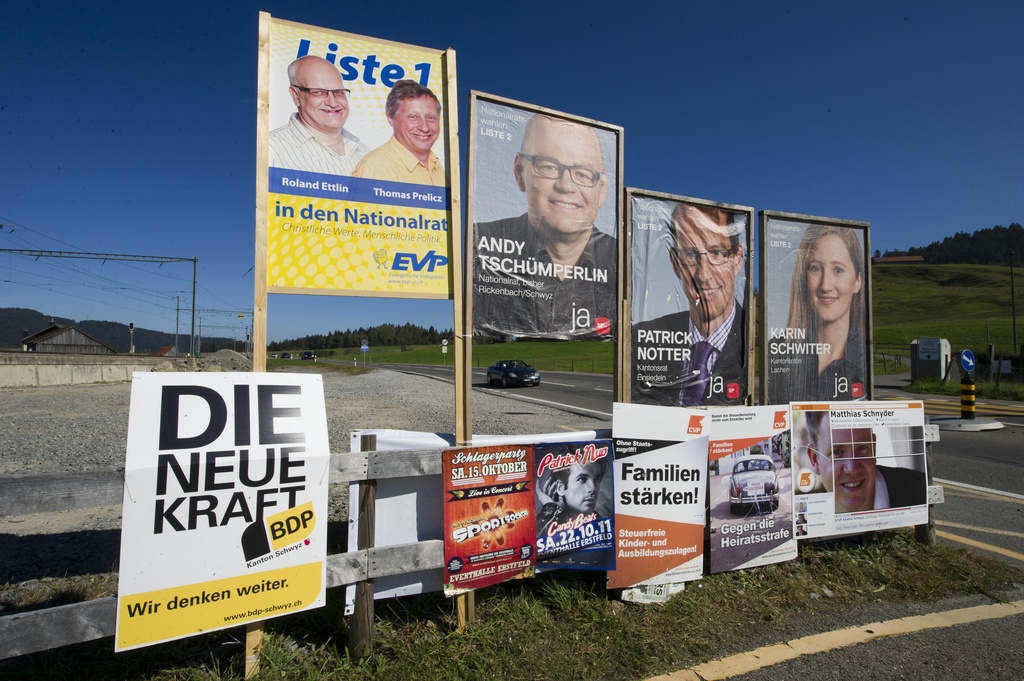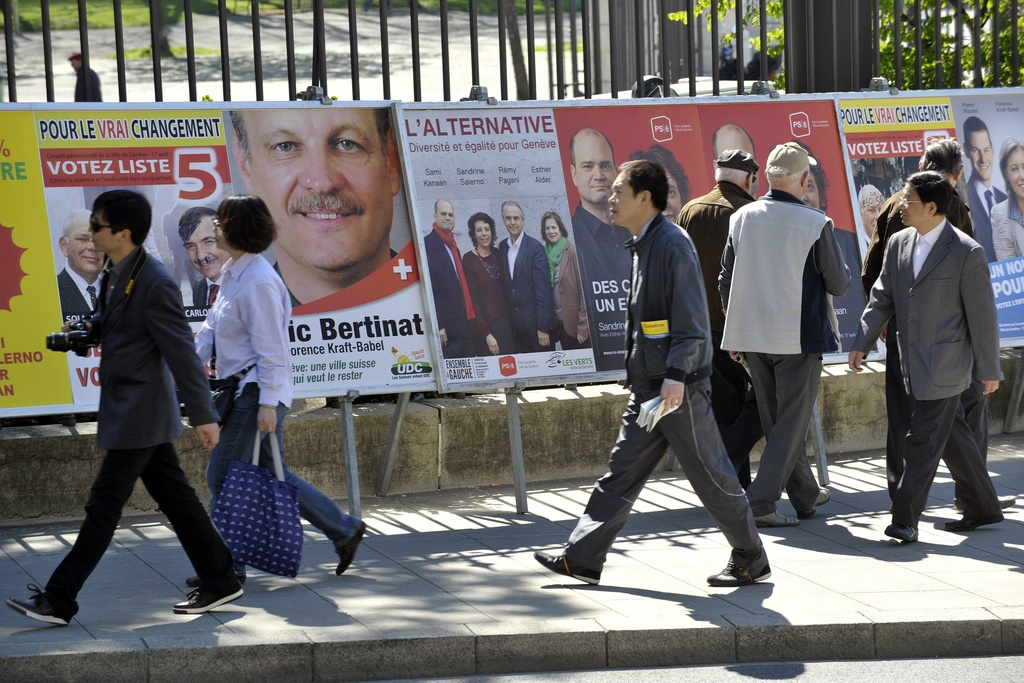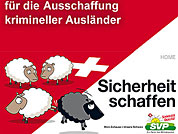Polarisation undermines party success

The rightwing People’s Party has built up a strong base of supporters in the past few years, but its polarising policies mean that it also has a lot of fierce opponents, says a study of the 2011 parliamentary elections.
The Selects Electoral Study written by Swiss political scientists and published on Monday says the party’s rightwing line had made it unattractive to centre voters.
“A clear majority of the electorate cannot imagine ever voting for the People’s Party,” the study found.
“The People’s Party was one of the major contributors to the polarisation that has taken place in Switzerland over the last 20 years, and for a long time its positioning of itself as a national-conservative rightwing party was a recipe for success. But in the 2011 elections it became the victim of this very polarisation,” the report says.
Although it remains the strongest party with 26.6 per cent of the vote, it has lost some of its potential electorate, and its isolation in the political landscape is the reason why it failed to win the Senate seats it was hoping for, despite fielding prominent candidates.
Georg Lutz and Pascal Sciarini, the authors of the report, say the People’s Party faces a catch 22 situation.
To win additional support the party would have to open up to the centre-right. But in doing so it risks losing its high profile and making voters from the far right unhappy, the political scientists from Lausanne University say.
“As long as Christoph Blocher remains a leading figure in the party there is unlikely to be a re-vamp of the current party strategy. They will continue to be in government and act as opposition group at the same time,” says Lutz.
Fragmented centre
On the other hand, two new centre parties, the Conservative Democrats and the Liberal Greens were able to draw supporters away from almost all other parties.
The former, seen as being more right-leaning, attracted equal numbers of votes from three of the established parties: the People’s Party, the centre-right Radicals and the centre-left Social Democrats.
The Liberal Greens, which is slightly left-leaning, drew votes from the Radicals, Social Democrats and the Greens. It also attracted support from many people who did not vote in the 2007 elections.
The emergence of the two small parties led to fragmentation of the political centre, which calls for increased coordination efforts. It also makes it harder to govern under the Swiss a system of power-sharing.
“Problems are foreseeable in the near future,” says Sciarini.
Five political parties are currently represented in the seven-member cabinet.
Since 1995
The study by the Swiss Foundation for Research and Social Sciences is based on nearly 4,400 interviews in Switzerland conducted up to three weeks after the elections in October 2011.
It is the fifth time since the 1995 parliamentary election that scientists from Lausanne University have presented such a broad set of findings.
They for the first time also included a study of the voting patterns of the Swiss abroad (see box, top right) and of immigrants who acquired Swiss citizenship.
The researchers had access to data on Swiss expatriates. More than 1,620
Swiss abroad were invited to answer questions of an online survey.
The Social Democrats came top in the 2011 elections among Swiss voters living abroad.
They won about 24% of the vote ahead of the Swiss People’s Party with about 20%.
Turnout among expats was around 30% compared with just under 50% in Switzerland.
House of Representatives
People’s Party: 54 seats (-8)
Social Democrats: 46 (+3)
Radical Party: 30 (-5)
Christian Democrats: 28 (-3)
Green Party: 15 (-5)
Liberal Greens: 12 (+9)
Conservative Democrats: 9 (+9)
Senate
People’s Party: 5 seats (-2)
Social Democrats: 11 seats (+3)
Christian Democrats: 12 seats (-2)
Radical Party: 11 seats (-1)
Green Party: 2
Liberal Greens: 2
Conservative Democrats: 1
Independent: 1

In compliance with the JTI standards
More: SWI swissinfo.ch certified by the Journalism Trust Initiative






You can find an overview of ongoing debates with our journalists here. Please join us!
If you want to start a conversation about a topic raised in this article or want to report factual errors, email us at english@swissinfo.ch.